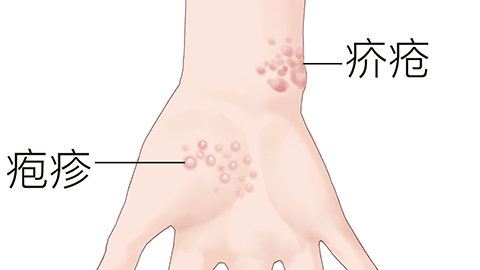What are the best treatment methods for scabies?
Generally speaking, there is no such thing as "the best treatment for scabies." Treatments for scabies mainly include topical medication therapy, oral medication therapy, disinfection and isolation therapy, symptomatic supportive therapy, and traditional Chinese medicine therapy. The details are analyzed as follows:
1. Topical Medication Therapy
Topical medication therapy is a common treatment method for scabies, directly targeting the skin to kill scabies mites. Patients can use medications such as sulfur borax cream or crotamiton cream as directed by a physician. These medications work by damaging the cell membranes or nervous systems of the mites, effectively eliminating them and helping to relieve symptoms such as skin itching and rashes.

2. Oral Medication Therapy
When topical medications are ineffective or the condition is severe, oral medications may be used. Patients can take ivermectin tablets as directed by a physician. This medication acts on the nervous system of the mites, disrupting their normal physiological functions and killing the mites. It is suitable for cases of widespread scabies or those accompanied by compromised immune function.
3. Disinfection and Isolation Therapy
Patients should thoroughly disinfect their living environment, clothing, bedding, etc., using methods such as boiling in hot water or sun exposure. At the same time, patients should avoid close contact with others to prevent spreading the disease, create a favorable environment for treatment, and avoid re-infection that could lead to recurrence of the condition.
4. Symptomatic Supportive Therapy
To address the intense itching caused by scabies, symptomatic treatment can be administered. Patients can take antihistamine medications such as cetirizine hydrochloride tablets, fexofenadine hydrochloride tablets, or loratadine capsules as directed by a physician. These medications block the binding of histamine to receptors, reducing allergic skin reactions and alleviating itching, thereby improving the patient's quality of life and preventing secondary infections caused by scratching-induced skin damage.
5. Traditional Chinese Medicine Therapy
In traditional Chinese medicine, scabies is often attributed to the accumulation of damp heat in the skin. Treatment typically involves using Chinese herbs that clear heat, remove dampness, kill mites, and relieve itching. Some practitioners may also use acupuncture to regulate the body's condition, helping to alleviate discomfort such as itching and promoting recovery.
In addition, patients should follow medical advice for standardized medication use and regular follow-up visits during treatment to ensure complete eradication of the mites. If abnormal conditions such as skin infection or worsening symptoms occur during treatment, patients should seek timely medical attention to adjust the treatment plan.






